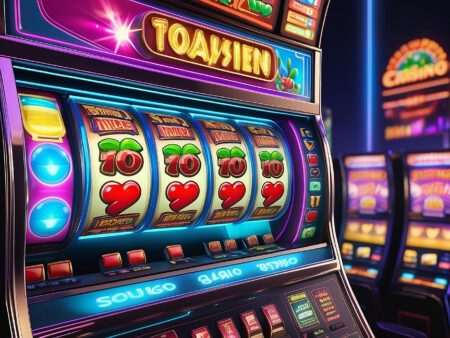Uncover the secrets behind the captivating roulette wheel and enhance your gaming experience. Understand its construction, operation, and the role of mathematics.
Roulette Wheel Secrets: Unveiling the Mystery
Roulette is a popular casino game that has captured the hearts of gamblers around the world. Its allure lies in the spinning wheel, the anticipation of the ball landing on a winning number, and the possibility of walking away with a hefty sum of money.
But have you ever wondered how the roulette wheel works? Are there any secrets behind this iconic casino feature? In this article, we will delve into the intricacies of the roulette wheel, shedding light on its construction, operation, and the odds it presents. Whether you’re a seasoned player or a newbie looking to try your luck, understanding the roulette wheel secrets will undoubtedly enhance your gaming experience.
The Anatomy of the Roulette Wheel
Before we dive into the secrets, let’s take a closer look at the structure of the roulette wheel. A standard roulette wheel consists of 37 or 38 numbered pockets, alternately colored in red and black. The numbers range from 0 to 36, while American roulette wheels have an additional double zero (00) pocket. The wheel is mounted on a spindle and is spun in one direction, while a small ball is spun in the opposite direction.
Each pocket on the wheel is numbered and divided into three main areas: the ball track, rotor, and frets. The ball track is the outer rim of the wheel where the ball travels before settling into a pocket. The rotor is the central part of the wheel that spins, carrying the pockets with it. Frets are the separators between each pocket, causing the ball to bounce and deflect before it comes to rest in a pocket.
The Secrets Behind Roulette Wheels
Now that we understand the basic structure of the roulette wheel, let’s uncover some of its secrets:
- Balance and Leveling: To ensure fair gameplay, modern roulette wheels are carefully balanced and leveled. Manufacturers use sophisticated techniques to eliminate any bias caused by imperfections in the wheel. However, it’s worth noting that older or poorly-maintained wheels may have slight imbalances that can affect the outcome.
- Randomness: Roulette is often regarded as a game of chance, and the roulette wheel plays a crucial role in maintaining randomness. The ball is supposed to bounce and deflect off the frets and pockets in an unpredictable manner, making it hard to determine the final resting place. The randomness ensures that every spin is independent of previous spins, making it impossible to predict the outcome.
- Biased Wheels: Despite the efforts to maintain fairness, it is theoretically possible for a roulette wheel to become biased over time due to wear and tear or manufacturing defects. A biased wheel might favor certain numbers or a specific range of numbers, leading to a predictable outcome. However, it’s important to note that casinos closely monitor their wheels and take immediate action if they suspect any bias.
- Wheel Speed: The speed at which the wheel spins can also influence the outcome of a spin. A fast-spinning wheel may lead to a higher probability of the ball landing in certain sections of the wheel. On the other hand, a slow-spinning wheel could result in the ball settling in a different section. Skilled players often pay attention to the dealer’s spinning technique to gain insights into where the ball might land.
The Role of Mathematics
While there may be some secrets and uncertainties surrounding the roulette wheel, mathematics plays a significant role in determining the odds and probabilities. Each pocket on the wheel has an equal chance of being the outcome of a spin, assuming a fair and well-balanced wheel. The presence of the zero (and double zero in American roulette) provides a slight advantage to the casino, as it does not pay the same odds as the number of pockets would suggest.
To maximize your chances of winning, it’s crucial to understand the different types of bets and their corresponding payouts. By strategically placing your bets, you can make informed decisions and potentially increase your winnings over time.
Conclusion
The roulette wheel holds many secrets, from its intricate construction to the role it plays in maintaining randomness. While there may be some uncertainties, understanding the fundamentals of the wheel can help you make better decisions when playing roulette. Remember, though, that roulette is ultimately a game of chance, and no strategy can guarantee consistent wins. So, embrace the excitement of the game, savor the mystery of the spinning wheel, and may lady luck smile upon you.










